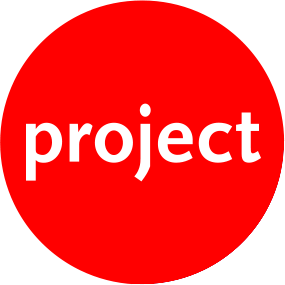Project Arts Centre presents
Project Arts Centre is delighted to present a special studio visit with visual artist Emma Wolf Haugh, and a conversation with curator and writer Rike Frank.
Venue: Studio 11 at IMMA residencies, Royal Hospital Kilmainham, Military Rd, Kilmainham, Dublin 8
Domestic Optimism begins with the work and continually expanding legacy of the Irish-born, self-taught, modernist architect and designer, Eileen Gray. A considerable amount of attention has been given to Gray’s work in recent years but, more often than not, the queerness inherent in her life and design is sidelined or ignored. Wolf Haugh is interested in what comes to bear on the construction of legacy and what is and isn’t given historical attention.
Curator and writer Rike Frank has, over the last several years, conducted research on textiles as well as the temporal dimension of exhibiting. This studio visit and conversation between Wolf Haugh and Frank offers a unique opportunity to learn about the research process and preview the making of the new work, while also exploring questions in relation to identity construction in modernist design history, and the legacy built around Gray and her work that erases the close connections she had with other women makers.
The first scene of Domestic Optimism will be presented at Grazer Kunstverein in autumn 2020 followed by the second scene at Project Arts Centre in February 2021.The first part of the project will be exhibited as part of ‘Seized by the Left Hand’ (curated by Eoin Dara and Kim McAleese) at Dundee Contemporary Arts in December 2019.
The trope of the architect-genius was a staple of the Modernist project: hypermasculinised, uncompromising, and embodying a far reaching fantasy of power. Recent work on Gray’s legacy tends to place her as a peculiar ‘other’ within the lineage of the hero-architect, bestowing on her a place in an overtly male dominated, heteronormative canonical history. Gray’s architecture and design were not simply an ‘other’ approach to the Modern Movement, but an extensive critique on the movement itself. Gray was not alone in her thinking and working methods, and much of her work engages with aesthetic strategies used by other female artists active throughout early Modernism. They devised strategies to resist the reduction of a non-heterosexual identity to an emergent pathological lesbian identity: unfamiliarity; liminality; ambiguity; opacity; privacy; and ‘screening’ all offered ways to resist easy communicability or clarity of identity. Much of this experimentation happened in relation to reimaginings of domestic space – in literature, painting, performance, photography, and design. These contributions are often overlooked in Modernist discourse and, as such, the networks of female support and influence are not acknowledged, and thus placing figures such as Gray in working relation to canonical modernism, aligned with heroic modernist figures such as Le Corbusier, Frank Lloyd Wright, and Theo van Doesburg of De Stijl. (Emma Wolf Haugh)
To attend this event please RSVP to livia@projectartscentre.ie
Credits
Image:
Photo courtesy Emma Wolf Haugh
Biographies
Emma Wolf Haugh is a visual artist and educator based in Dublin and Berlin. Weaving together installation, performance, publishing, and collaborative workshop techniques, she is interested in re-orienting attention in relation to cultural narratives, developing work from a queer/feminist questioning based on asking ‘what is missing?’ Her practice is informed by previous experience in theatre and queer DIY club scenes, both sites where spaces and spatial relations are generated temporarily. The stage and the dance floor or darkroom are designed to focus attention via a set of aesthetic practices, including the manipulation of audio/visual, moveable hard/soft architectures, ephemera and the performing body. This has led to a continuing engagement with the aesthetics of club culture, along with questions of spatial politics, and an incorporation of theatricality as a means of making propositions. Emma Wolf Haugh is co-founder of the artistic/curatorial collective ‘The Many Headed Hydra’ together with Suza Husse, co-artistic director of District Berlin.
Rike Frank is based in Berlin. As curator and writer, she has edited and co-edited: ‘Ane Hjort Guttu. Writings, Conversations, Scripts’ (2018); ‘Textiles: Open Letter’ (with Grant Watson, 2015); ‘Textile Theorien der Moderne. Alois Riegl in der Kunstkritik’ (with Sabeth Buchmann, 2015); ‘Timing—On the Temporal Dimension of Exhibiting’ (with Cultures of the Curatorial, 2014); and ‘Sketches of Universal History: Compiled from Several Authors by Sarah Pierce’ (2013). Previously she has worked as: Associate Professor of Exhibition Studies (KHIO, Oslo); curator at Academy of Fine Arts Leipzig; program team of the European Kunsthalle & Ludlow 38, New York; head of the Curatorial Office, documenta 12; and curator at the Secession, Vienna.
Funding
Domestic Optimism is supported by the Arts Council of Ireland with a Project Award research fund. Emma Wolf-Haugh is a recipient of the IMMA 1000 Residency Award.
Project Arts Centre is proud to be supported by the Arts Council Ireland and Dublin City Council.
